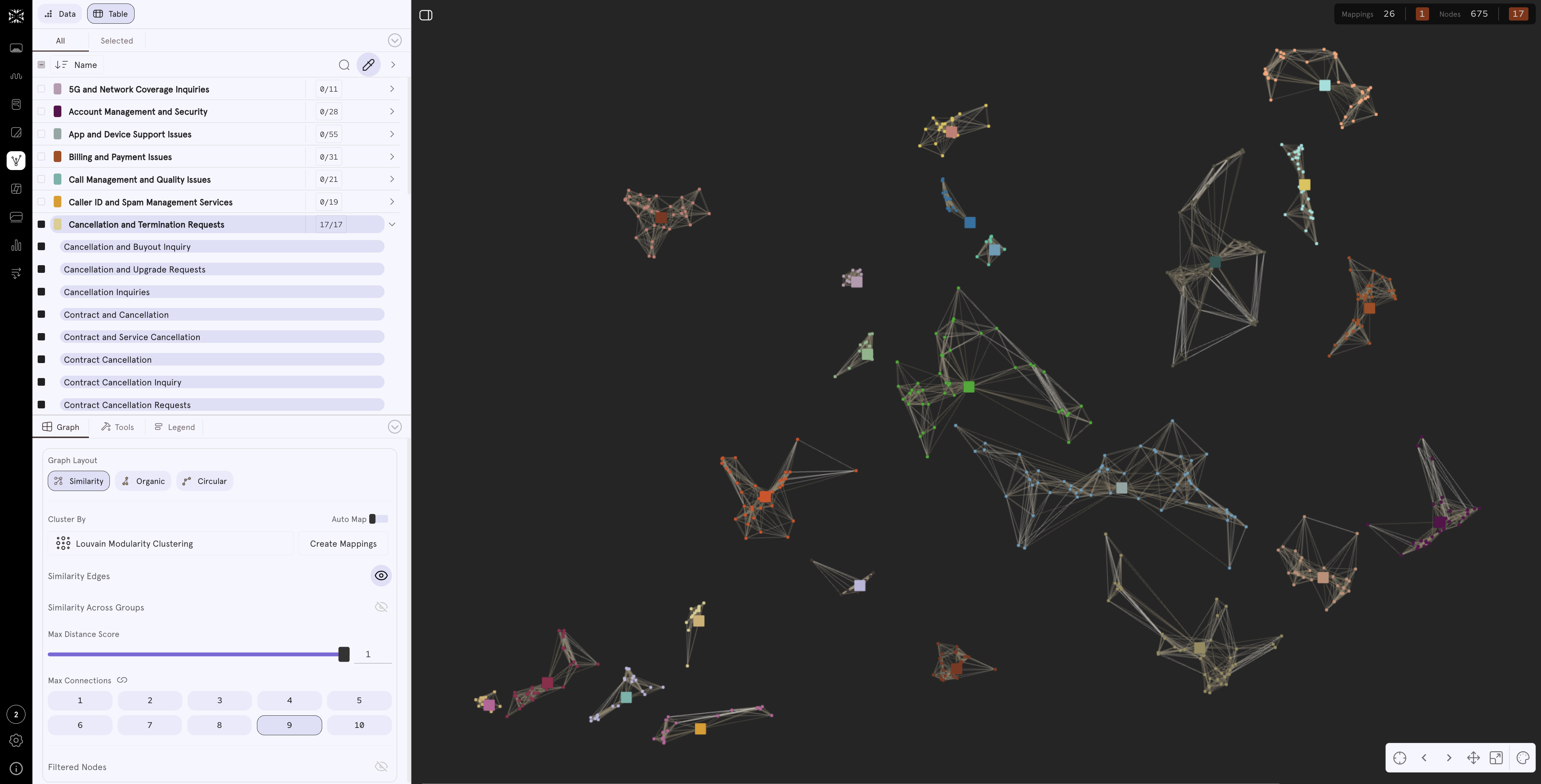Data Mapping
Our advanced data mapping capability identifies themes organically in any unstructured dataset.
Data Maps
Transform any dataset into an interactive landscape for surfacing themes. Going beyond semantic clustering, our Data Maps are designed to identify similarities in textual data across 260 dimensions of meaning. This approach reveals how unstructured information is related based on underlying context not just shared words and phrases.
Use this module to scale organic theme detection and tracking at the level of specificity (and customization) that your team needs to find insights that matter.
- No predefined inputs or taxonomies needed.
- Auto-mapping identifies clusters using adjustable similarity thresholds.
- Maps also serve as human-in-the-loop guidance for AI to process and group future data.

Mapping Quickstart Guide
Need insights fast? Grab a quick win using the auto-mapping capabilities.
Use Case: Category Refinement
The "Reason" dimension outputs a dynamically generated label to describe each conversation (or document) in a dataset. These labels are then packaged into suggested Categories. With the assistance of the data mapping module users have the option to clearly define category boundaries before extracting insights.
- Uses standard dimensions (available out-of-the-box)
- Covers the full dataset
- Provides the AI with guidance to categorize future data
Mapping Quickstart: Category Refinement to Actionable Insight [4:56] (no sound)
11/2025
This quick start guide applies for the dimensions Category | session (a single theme per conversation) or Category | section (identifies multiple themes per conversation). New users are recommended to begin with session-level analysis.
Mapping Troubleshooting:
If the 'Node Dimension' field appears blank, or a custom dimension is missing from the list of options, contact your customer representative to chat with us on dimensionlabs.io to enable prompt outputs in the mapping module for your organization.

Updated 2 months ago
